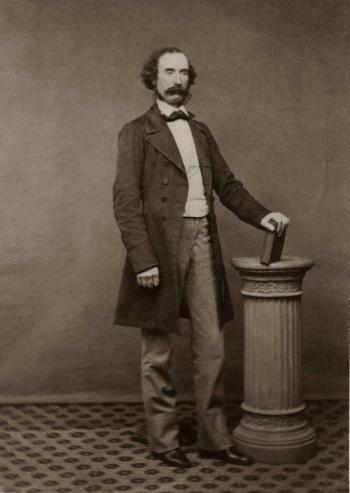Poetry and prose are classic forms of writing which awaken our minds and lead our hearts to a deeper sense of awareness of life, its beauty, and its goodness.
One very special composer of poetry and prose was Gerard Manley Hopkins.
‘The Habit of Perfection’
His mother was pious, contemplative, and an intellectual. His first school was Highgate, where he won a prize for his poetry.
From here he went on to Balliol College, Oxford, to read classics. Here he met Robert Bridges, and his diaries of the time were full of sensitive observations of nature and poetic imagery, e.g. the theory of the origin of language, leading to combined meaning and sound, which was later accountable for the maturity of his poetry. Between 1862 and 1868, he showed that he could handle the conventional forms and metres. This is shown clearly in “The Habit of Perfection”:
Elected Silence, sing to me
And beat upon my whorled ear,
Pipe me to pastures still and be
The music that I care to hear
The above passage indicates that, by this time, Gerard Manley Hopkins was at a high level of understanding and composition. Another quality of Gerard Manley Hopkins was that of his thinking: for example, he thought deeply about the inner self and of human nature, of good and evil. He thought about God and higher levels of spirituality. He was aware of the Oxford Movement (which began in 1833), an effort to establish the authority of Catholic Movements in the English Church.
In 1845, John Henry Newman, a popular Oxford priest, had changed over to the Roman Catholic Church. Hopkins, thinking deeply about the needs of society and nature, also followed his heart-thinking, which then compelled him to do the same.
He joined the Order of the Jesuits, though it took some years for him to become an ordained Jesuit priest working in the parishes. He was placed in Dublin after his ordination.
After spending some time in Ireland, he was shocked by the impoverishment of the poor of Ireland. It did not fit in with his views of inscape, whereby he considered real beauty to be found in the inner self. He could see that the people were weak, sickly and without adequate nutrition.
While he continued to compose his poetry and prose as a Jesuit priest, he also produced church music and hymns.
After his ordination in 1877, he was priest in a number of parishes. From 1884 he became a Professor of Classics at University College Dublin.
He was little known as a poet in his lifetime. Though he died in 1889 aged only 44, his poems were not published until 1918, in a volume edited by Robert Bridges.
As his early work was released, the cognisant were overwhelmed by the excellence of the work produced by Gerard Manley Hopkins at a young age. Many critics searched for a comparable talent at an equally high level.
The closest some commentators could find was Oscar Wilde. What those two writers and academics had in common was that both were the offspring of highly academic parents, and they were both nurtured into learning and interacting within society at a very young age.
Today, both are renowned for the power of their language and poetry.




